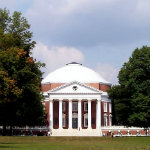Last December, Rolling Stone magazine published a lengthy article entitled “A Rape on Campus” that described in graphic detail a horrific 2012 gang-rape at a University of Virginia fraternity house. The story went viral globally, damaging the reputation of one of the most respected public universities in the nation.
Almost immediately, as numerous journalists investigated the facts, the story began to unravel. The Columbia Journalism Review deemed it the worst piece of journalism of 2014, and the Poynter Institute for Media Studies named it “Error of the Year.” Last month the Charlottesville police chief announced after a four-month intensive investigation there was “no substantive basis” to support the article, and Sunday Rolling Stone formally retracted the article following a scathing report on the matter from the Columbia University Graduate School of Journalism. The story’s author also issued a formal apology to the University of Virginia community.
There is irony in this otherwise tragic defamation, which has reportedly led high school students and their parents to cross U.Va. off their short lists of colleges owing to the article’s characterization of it as “the rape school.” In reality, the evidence suggests that if the parents of a college-age woman want to protect her from being raped, sending her to the University of Virginia is a prudent move.
Last December, the Department of Justice’s Bureau of Justice Statistics released a special report on “Rape and Sexual Assault Victimization Among College-Age Females, 1995-2013.” Based upon a number of studies — including information provided by thousands of college-age women — it concluded that an 18- to 24-year-old woman who did not attend college had a 50 percent greater risk of being raped than one who attended college.
While the data used did not identify specific colleges, the report did compare schools in different regions of the country — with southern schools having the fewest per capita assaults. Indeed, on average, a woman who attended a university in the Midwest had a 56 percent greater risk of being sexually assaulted than one attending a southern school like the University of Virginia.

Ascertaining the actual number of rapes at any school is difficult. The Bureau of Justice Statistics study noted that only 20 percent of college women surveyed who reported being sexually victimized said they had reported the assault to the police. Another problem is that many studies conflate forcible rapes with lesser offenses like an unwelcome kiss or offensive touch. One study used by the Bureau of Justice Statistics included “unwanted sexual experiences that do not involve physical contact.” Combining such offenses with forcible rape makes it difficult to get a handle on the extent of violent sex crimes on campuses.
Last year, the University of Virginia reported a total student population of 21,238, of whom 55 percent were female — or roughly 11,700. According to the Department of Education (which mandates that all complaints of sexual misconduct be reported annually), since the reporting process began in 2011 the university has averaged roughly 17 reported sexual offenses per year, or fewer than two for every 1,000 female students (0.15 percent).
The U.Va. Police Department website reports all criminal complaints it receives each month, and during all of 2014 there was a single rape allegation filed — which occurred on Jan. 2 during the winter break, when most students were away. Last year’s tragic murder of second-year student Hannah Graham may also have involved a rape, but the individual charged with the offense was never a U.Va. student. It is noteworthy that he was accused of rape while attending two other colleges and has reportedly been tied by DNA evidence to other rapes, which is consistent with findings by experts that at least 90 percent of rapes are committed by serial offenders who average more than 5 victims each.
Examining Charlottesville Police Department figures for “UVA-Related” offenses discloses that in the five-year period ending in 2014 there were a total of 30 reported felony sex offenses, including an average of three rape complaints per year (one rape in 2014). Fourteen of the 30 complaints involved unwelcome “fondling,” and 79 percent of those involved strangers in public settings. All but one occurred after midnight, and most after 2 a.m. — when alcohol may well have been a factor.
Even three rapes per year is three rapes too many, and that figure is almost certainly understated. University of Virginia President Teresa Sullivan and other school administrators were actively engaged in a variety of initiatives to improve student safety long before the Rolling Stone libel was published. Starting in 2011, U.Va. invested more than $400,000 in new security lighting, and there are now more than 500 emergency phone boxes around the grounds. The Safe-Ride van system has been expanded to transport students after buses stop running. In February 2014, the university hosted a national conference that assembled experts from 60 colleges and universities to address issues of student sexual misconduct. Things are not perfect in Charlottesville, but the data simply do not support the claim in Rolling Stone that U.Va. is “the rape school.”
Rape is a vile and despicable crime that ought to be prosecuted to the full extent of the law (which in Virginia includes the possibility of life imprisonment). One rape at the University of Virginia, or any other university, is one too many. But precisely because the crime is so heinous, one false accusation of rape is also one too many. It is particularly sad when a widely publicized false allegation serves to undermine the reputation of one of the nation’s finest institutions of higher learning.
(This article first ran in The Washington Times on April 6, 2015)
Email Robert Turner
Robert F. Turner has taught at the University of Virginia since 1988 and is a Member of the Board of Directors of the Thomas Jefferson Institute for Public Policy. His son Thomas is a third-year student in the university’s Batten School of Leadership and Public Policy. The views are personal.
Email Thomas Turner





